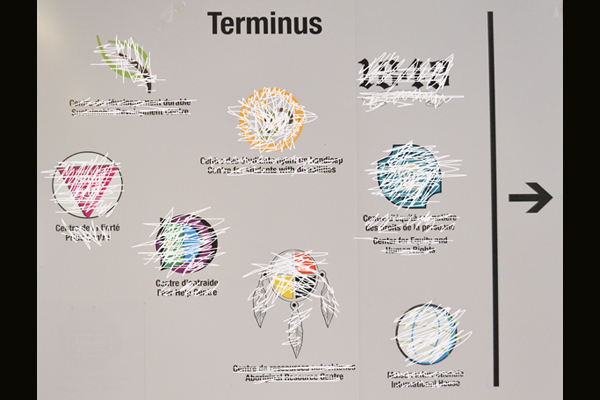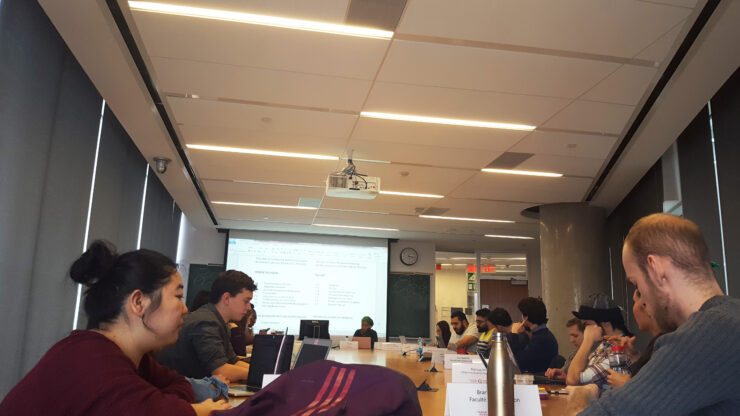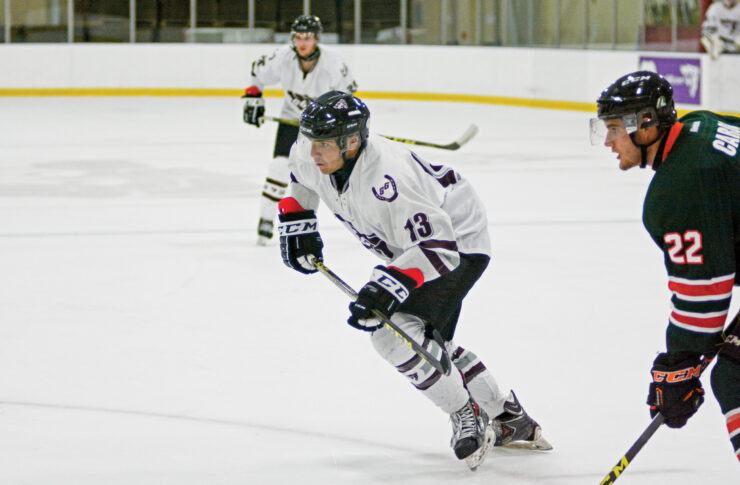Coaches and athletes pledge to speak up for fellow athletes with concussions
On Sept. 12 the Gee-Gees participated in Team Up Speak Up Day, an initiative started by the Concussion Legacy Foundation (CLF).
According to their website, the CLF is “dedicated to advancing the study, treatment and prevention of the effects of brain trauma in athletes and other at-risk groups.”
The purpose of Team Up Speak Up, according to CLF is to ask “coaches, captains and medical teams to give a speech to their athletes stressing that a good teammate looks out for concussions in their teammates and has a responsibility to speak up to a coach or athletic trainer if they suspect their teammate has a concussion.”
Throughout the day, numerous Gee-Gees athletes and coaches pledged in videos posted to Twitter to speak up if they should see a fellow student-athlete suffering from concussion symptoms.
Our very own ambassador for the @ConcussionLF, Brent Sullivan, is taking the pledge to #TeamUpSpeakUp pic.twitter.com/lPcNx16ddi
— uOttawa Gee-Gees (@uOttawaGeeGees) September 12, 2017
Kayla De Costa Pacheco is taking the pledge to #TeamUpSpeakUp pic.twitter.com/IIzCVCtaZe
— uOttawa Soccer (@geegees_wsoccer) September 12, 2017
Shout out to #GGNation! The @uOttawaGeeGees are crushing it with multi-sport, bilingual #TeamUpSpeakUp videos! https://t.co/oHBCjFOZTJ
— Concussion L.F. (@ConcussionLF) September 12, 2017
Gee-Gees head athletic therapist Jill Stockton said an event like Team Up Speak Up is important for developing trust between athletes, coaches, and medical staff.
“It’s important for the Gee-Gees to be involved to know that their safety is being looked after, but also to know that their teammates—whether that be on their team or just their fellow athletes—that they are looking out for each other,” said Stockton.
When asked how often she has to deal with concussions among student-athletes, Stockton didn’t hesitate.
“Weekly. It’s a very common occurrence in sport, unfortunately. Because of initiatives like this and other initiatives it’s becoming more known and people are feeling more comfortable to speak up and tell us something’s happening.”
Stockton explained that the difficulty in addressing concussions is the lack of a medical test that can 100 per cent conclude the presence of a concussion.
“If you tear your ACL I can do a test that can tell ‘oh, ligament’s not there anymore,’” said Stockton. “But with your head I have to go off a lot of what you say and how you’re feeling and there are obviously some very telling signs of concussion when you see them happening but there are some that you don’t know until the athlete can confide in you.”
The University of Ottawa has a strict concussion protocol. Stockton explained that if they see even one mechanism for injury—such as a hit to the head—and one symptom, they immediately remove the athlete from the game.
“As soon as that happens they’re removed and assessed on the sideline by a certified therapist, the student therapist, or the doctor at the game,” said Stockton. “As soon as they’re removed they’re not allowed to return, and the minimum amount of time from initial impact to returning to a game is eight days.”
An initiative like Team Up Speak Up is a great way for the U of O to help raise awareness of concussions. Concussions are a dangerous health risk to athletes, and it’s important that when an athlete suffers a concussion, they are able to get help right away.
“I just encourage any athlete who’s having symptoms not to hide their symptoms and to tell us, because we have the tools to be able help them make it through that,” said Stockton. “And when symptoms are hidden, in sport, it delays their return. It delays the whole process. So the best thing for them is to tell us right away so we can get on top of it and we can help them feel better quicker, because that’s our job.”





